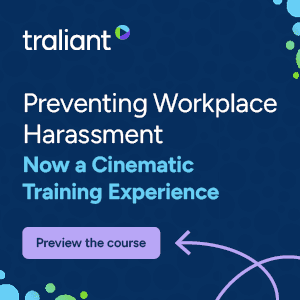Ageism is considered by many to be the most significant form of bias in the tech industry. If businesses are serious about increasing diversity, equity and inclusion (DEI), an anti-ageist hiring policy may be missing a piece of the puzzle.
It has been more than 50 years since the Age Discrimination in Employment Act made it illegal to discriminate against someone in the workplace based on their age. However, despite ageism being a clear violation of a person’s rights, it has become one of the most common forms of employment discrimination. Many equity advocates consider it to be the last form of acceptable bias. It is significantly amplified in the tech industry.
A friend was asked by a recruiter – at a reputable company – to add their date of graduation back to their resume, so the company’s interviewers had a complete view of the “maturity” of applicants.
In case you are unaware – tech also has an ageism issue.
— Ann Johnson (@ajohnsocyber) May 24, 2021
According to the 2018 Dice Diversity and Inclusion report (PDF download), 76% of respondents believed that ageism exists in the industry. First Round’s 2018 State of Startups survey of company founders registered ageism as the top perceived form of bias in the sector. Founders reported, on average, that age discrimination begins as early as 46. Speaking with New Republic in 2014, Bay Area cosmetic surgeon Dr. Seth Matarasso acknowledged that tech workers have come to make up the most significant base of his clientele. Increasingly, his patients are in their 30s, if not their 20s.
Ageism in Tech: An Accelerating Challenge to Diversity, Equity and Inclusion
As technology has been deemed “future-focused” and continues to evolve and change, the drive for innovation keeps everyone looking to the future of the industry – the “younger generation.” As a result, ageism in tech goes unchallenged due to the stereotypes of mature workers not being “tech-savvy.” However, that couldn’t be further from the truth. These very workers have the seasoned experience necessary to be the most qualified candidates for certain roles.
As a Black woman who has been in tech since the ’80s, I’ve had the opportunity to navigate and work across multiple roles, teams and companies.
I started out in the industry back in the day selling large-frame computers and telecommunications products. Throughout my career, I’ve witnessed the advancement of technology through camera phones, Bluetooth and now, artificial intelligence. There have been times in my career where I’ve felt as though my experience was devalued because of my age. However, I always take that moment to remind myself and my peers that someone like me has had to adapt and become flexible through all of these changes. That in itself is a skill that should be valued.
My experience should make me an asset to any team rather than serve as a barrier to entry. The same goes for older developers as they offer insight from experience.
Their time in the industry typically makes them better suited to senior roles when compared to fresh-faced programmers. More advanced developers may also be better equipped to handle legacy code, with a greater likelihood of knowing older languages. Having employees with this level of experience is critical and backs up the power of diversity in the workplace.
So, how can organizations improve the hiring process to ensure it’s as inclusive and ethical as possible? To prevent ageism in tech, companies should start by reviewing their recruiting and hiring practices to accommodate people of all ages. Creating and sustaining an inclusive hiring process is about much more than avoiding lawsuits over age discrimination. It’s critical to ensure HR teams hire the strongest, most qualified candidates while maintaining a strong employer brand.
Below are three fundamental techniques compliance and HR pros should consider when implementing hiring strategies.
Make Sure Bias Isn’t Baked Into the Job Description
Ageism is more often encountered during the job search process than in the workplace, according to a recent survey of U.S. professionals. With that in mind, the first step in structuring an efficient and equitable hiring program is to form a job analysis and create a list of relevant competencies. The job description is the first opportunity to formalize the attributes that businesses want to find in a successful team member, so it’s important to ensure these attributes are measurable and inclusive.
For example, hiring for a typical engineering role could include project discussions, algorithms or code reviews. These competencies are clearly defined and can be measured in an objective and structured way.
Try to steer clear of verbiage such as “ninja” or “rock star,” as this sort of coded language is an instant red flag for older candidates. It can’t be measured objectively – but it may discourage older applicants from applying because they fear they won’t be a “culture fit.”
Create Equitable and Accessible Interview Processes
Talent acquisition personnel should be looking for three to five core competencies at the interviewing stage based on an inclusive job description. Once interviewees have been determined, you can examine other core competencies as the candidate field is narrowed down.
If current hiring processes involve administering tests to measure technical skills, keep in mind that some candidates may be superstar test-takers while others who may be just as qualified won’t be. When testing serves as the exclusive litmus test, an organization may miss hiring qualified candidates who add value to the workplace.
Additionally, don’t load up job candidates with too many assignments during the hiring process. Suppose an interviewer hands out a four- to 16-hour coding assignment to a candidate for a software programming position. In that case, it’s not only a red flag for candidates, but it also discriminates against time-crunched candidates.
Make sure to train interviewers to deliver questions consistently and clearly to gain solid predictive insights. A 60-minute, in-depth interview — such as a technical interview for a tech role — to assess competencies should be all a hiring manager needs, especially if a structured rubric is in place to evaluate and compare candidates.
Lastly, consider offering candidates the opportunity to redo their technical interviews. About 15 percent of candidates elect to redo their interviews (with new questions) if given a chance, and the vast majority of them improve significantly once they are familiar with the environment and format.
Measure the Candidates’ Experience to Monitor the Interview “Drop-Off” Rate
It’s crucial that hiring managers measure and track the candidate’s interview experience. HR teams can do this by collecting candidate feedback after the fact, which is ideal. But another measurable indicator of how candidates feel about the interview process is the drop-off rate by stage.
Keep in mind that if one interviewer has higher drop-off rates for women or other underrepresented minority candidates than their peers, it’s a huge red flag. Make sure hiring managers are reviewing the interviewer’s performance in a way that catches patterns like:
- Does the interviewer need to undergo unconscious bias training?
- Is there something about their interview demeanor that is turning off candidates?
- Is the interview slate inclusive enough (i.e., will candidates see themselves succeeding on a team)?
If there are concerns about the drop-off rate of a specific interviewer, remove that person from interview loops until the issue can be addressed — not just for the sake of compliance, but also for the preservation of an employer brand; candidates will share their experience in some form or fashion.
For recruiters, headcount prioritization is a great tool to ensure your business partners are doing right by the diverse candidates that are brought in. If drop-off rates are high for minority candidates or qualified candidates are being rejected for dubious reasons, consider pulling the headcount until the issues are addressed.
Conclusion
It’s obvious some individuals have biases toward older workers, assuming they cannot survive in a fast-changing and contemporary tech workforce. Still, the more transparency and consistency compliance and HR professionals build into the interviewing process, the more trust is built, which means less likelihood of overlooking highly qualified candidates.
Candidates will also react more positively to brands when they feel like they have the same shot as everyone else. This will help meet hiring goals, ensure compliance and improve the employer brand and candidate experience while building a more inclusive team to reflect the populations it serves through better recruiting and more responsible hiring.












